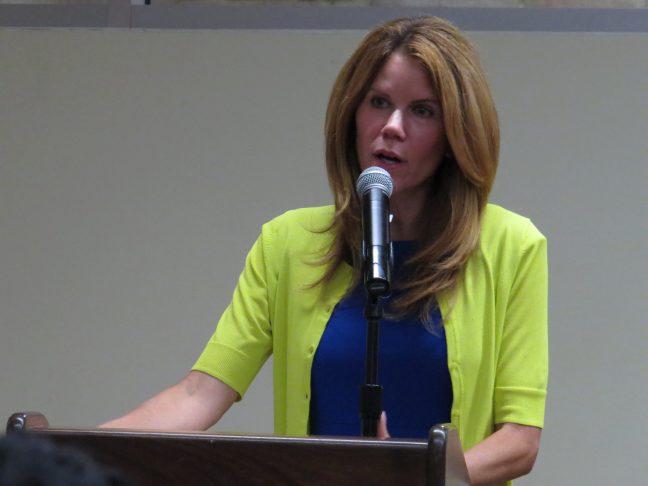Addressing how cuts to education affect students, Rep. Chris Taylor, D-Madison, said everyone has to come together to address systemic funding problems at “Fund the Freeze” “teach-in” Monday at Union South.
Taylor and United Faculty and Academic Staff President Chad Alan Goldberg spoke at the teach-in about the challenges facing universities in the wake of a $250 million budget cut to the University of Wisconsin System from 2015-17 state budget.
UFAS is a labor union representing faculty and academic staff at UW-Madison and UW-Extension. The Freeze the Fund campaign originated from discussion among local chapters across the state.
Goldberg said political forces in Wisconsin and nationwide are looking to “remake” public education.
“It’s a vision that involves privatization, that involves introducing market logic into higher education in ways where it’s not always appropriate,” Goldberg said.
He said this coordinated nationwide push is impacting students and teachers at UW-Madison in harmful ways.
Teaching Assistants’ Association Co-President Dylan Kaufman-Obstler described the challenges teaching assistants face in the workforce today, particularly taking on heavy workloads and supporting families on a below living wage.
“We’re really on the front lines of teaching and interacting with students,” Kaufman-Obstler said. “The working conditions for teaching assistants are becoming increasingly dire.”
She said one of the biggest issues is how universities are being operated as businesses, with classes being valued by how much money they can make. The result is that TAs can be paid less based on the subject they teach.
The negative effects being seen in teaching are not only a result of the 2015 budget cuts, but from the compounded effect of six years of “incredible, draconian cuts” said Gary Mitchell, a retired UW-Madison professor.
He said the freezing of $70 million over three years was modest compared to the cuts. These cuts have led to lack of training for new employees and unfilled positions that remain vacant, causing remaining employees to do the work of multiple people.
“All of the decisions that have been made over the last six years have a consequence, and the consequence is in the people that are at the end of the line,” Mitchell said.
Taylor proceeded to describe how state funding has changed over the years. She said state funding made up 53 percent of the UW budget in 2003 compared to about 30 percent today. Wisconsin is second from the bottom in the Midwest for funding per student.
She encouraged people around the state to engage with family and friends to vote and prioritize education so supporters are “very clear that it’s not acceptable to continue to cut and gut. We need investment. We have the money to make the investment. It’s got to be a priority.”














